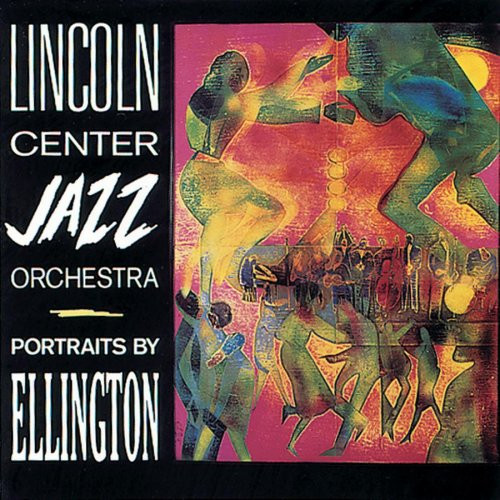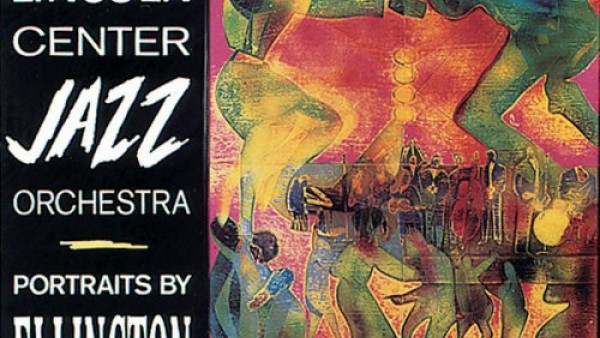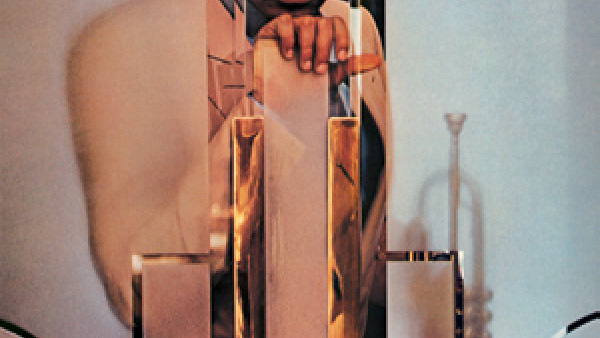The Young Lions’ Roar : Wynton Marsalis and the ‘Neoclassical’ Lincoln Center Orchestra
JAZZ : The Young Lions’ Roar : Wynton Marsalis and the ‘Neoclassical’ Lincoln Center Orchestra are helping fuel the noisiest debate since Miles went electric
NEW YORK — Halfway through condemning the electronic jazz-funk Miles Davis played in his later years, Wynton Marsalis stops himself. “Don’t print that, all right?” the trumpeter says suddenly. “When (Miles) was alive, I made it clear what I felt about what he was doing, and now that he’s dead I don’t feel I have to say any more about it.
“He knew what the truth was,” Marsalis adds in his soft Southern voice. “But he’s dead now, not alive to defend himself, and I don’t really feel right about talking about him in a negative fashion.”
This is a rare moment of diplomacy from a jazz purist who has often relished his attacks on the vulgar commercialism of modern music. Even as a 17-year-old, writing in his high school yearbook in New Orleans, Marsalis vowed to personally crusade against the “bull——” of commercial music. Today, as spiritual leader of a hotly debated “pure jazz” renaissance, he appears to be winning the crusade.
“I’m still the same, man,” Marsalis said on a recent summer afternoon in the sun-drenched plaza of New York’s Lincoln Center, where he helps run the jazz department. “Swing, blues, syncopation, harmony, melody, rhythm. That’s jazz. Group improvisation, that’s jazz music, out of the church tradition. All this cacophony and noise, people (who) can’t swing, don’t know harmony, no technical proficiency on their instruments—that’s not jazz musicianship.”
It’s an ethos that has been seized by an entire generation of young players, academy-trained prodigies like pianist Marcus Roberts, trumpeter Roy Hargrove and guitarist Mark Whitfield, whose records now crowd the jazz charts. Rejecting the last 25 years of pop-jazz fusion and other hybrids, these young players have modeled their music, their clothing and even their album sleeves on the classic acoustic jazz of Charlie Parker, Thelonious Monk and pre-electric Miles Davis that reigned from the 1940s to the early 1960s.
Dubbed the Young Lions, the Neoclassicists, the Re-boppers or simply the Wyntonites, these new players have sparked the most contentious debate in jazz circles since Davis hired a Motown bass player and plugged his trumpet into a wah-wah pedal back in the early 1970s. They may be the first new generation in jazz to be accused by their elders of being insufficiently rebellious.
“What they are doing is the Dixie revival of today,” 58-year-old saxophonist Steve Lacy remarked in a recent issue of the influential jazz magazine Down Beat. “I think they should be encouraged, but they better hurry.” Multi-instrumentalist Henry Threadgill complains that jazz no longer has the kind of young rebels who fueled its past innovations. Even trumpeter Freddie Hubbard, the subject of a recent tribute by the Wyntonites, admitted to the New York Times that the spirit of the original music is missing.
Perhaps more significant than the sales and the controversy they generate is the way the Wyntonites have infiltrated that bastion of anti-jazz snobbery, the classical music Establishment. In January, 1991, the Lincoln Center for the Performing Arts appointed Marsalis artistic director of its first full-time jazz department, a historic event at an institution that has looked down its nose at jazz for decades.
Once a 19-year-old student at the Lincoln Center’s Juilliard School of Music, Marsalis now helps oversee a $1-million-a-year jazz program in which his hot young proteges rub shoulders with older musicians and perform music by such past masters as Monk and Jelly Roll Morton. Whether in his trademark electric-blue stage jacket or his off-duty outfit of jeans, T-shirt and high-tops, Marsalis is a constant energizing presence here.
The Lincoln Center Jazz Orchestra, which makes its Los Angeles debut Wednesday at the Hollywood Bowl performing a program of classic Ellingtonia, embodies much of the trumpeter’s aesthetic. Its 15 members span the jazz genealogy, from 25-year-old tenor sax player Todd Williams to 71-year-old alto veteran Norris Turney. Its program of Ellington orchestral scores showcases the music at its most complex and sophisticated, and its black-tie civility is a visual antidote to jazz music’s lingering bohemian image.
Next week, Columbia Records releases “Portraits by Ellington,” the first in a series of recordings by the group, which was originally called the Classical Jazz Orchestra.
It was formed four years ago to build a “performance repertory” of both new works and classic compositions by the likes of Benny Carter, Count Basie and Jay McShann. Its Duke Ellington program on the current tour, for instance, ranges from romantic masterpieces such as “Sophisticated Lady” to the noir -ish ambience of “Asphalt Jungle Suite,” taken from Ellington’s relatively obscure score for a 1960s television show.
R epertory is a controversial word in jazz because replicating the past would seem to conflict with the improvising spirit at the music’s heart. Marsalis has taken pains to point out that the Lincoln Center Jazz Orchestra still swings and its players still cut loose.
But the orchestra’s conductor, David Berger, nevertheless spends hours analyzing and transcribing old recordings. Few of Ellington’s scores were actually written down, and the orchestra spent as much on transcribing and printing scores as it took in ticket sales from a recent sold-out New York concert.
Gary Giddins, jazz critic for the Village Voice, marvels at the swiftness with which the Young Lions have developed jazz into a concert art much like European classical music, with orchestras and conductors performing repertory works. “And that,” Giddins notes, “upsets a lot of people.”
In the July issue of Down Beat, trumpeter Lester Bowie of the avant-garde Art Ensemble of Chicago summarized much of the criticism. He dismissed a recording by clarinetist Dr. Michael White, an older neoclassicist, as a “clone.”
The Young Lions, Bowie said, seem “afraid to live their own lives. They’re extremely talented. Wallace (Roney) can play his ass off. Wynton, Terence Blanchard, Roy Hargrove, this guy Nathan Breedlove, Ron Howard in Chicago. But they’re going to have to understand that they have to take their talent and be themselves, because when you play jazz, you come off as what you are.”
In other words, is jazz suffocating in its own history? Do the Young Lions have the originality and the innovative brio of Dizzy Gillespie, Parker or Monk—the 1940s be-bop pioneers they venerate?
“That’s like saying: ‘Man—where’s Picasso?’ “ Marsalis responds. “Hey, you can’t predict it. But Matisse is a great artist too. You know, I read people saying that Marcus Roberts can’t play. But somebody will put some paint on their face (Art Ensemble of Chicago members appear in costume with painted faces), and they’ll be the next step in jazz. Come on, man, give me a break.
“I always hear this talking,” he adds, “but all those that think we’re looking backward, let them come up on our bandstand. They don’t know our music; they don’t know what we’re playing. I’ve been out here playing for 10 years hearing that. I know I have a very specific body of music that I would be very interested to hear all these musicians who are supposedly rebels play on top of.”
Marsalis says Bowie and other avant-gardists seem unwilling or unable to share a stage with the younger players.
“I’ve never seen Lester Bowie anywhere with his horn,” he says. “I don’t ever see these musicians in the context of music. All I hear is talk. And talk is fine, but you can never confuse it with music.”
Despite his reputation for self-righteousness, Marsalis is not given to anger. Even when throwing down the gauntlet to Bowie, whom Marsalis considers a friend, his husky New Orleans cadences and impish smile soften the delivery. But Marsalis personally discovered such players as 22-year-old trumpeter Roy Hargrove, whom he came across at a Texas high school six years ago. Clearly, the negativism of some older musicians rankles him.
*
To say that Marsalis has been tireless in his crusade to revitalize jazz would be a serious understatement. He plays up to 200 dates a year with his septet, criss-crossing the country and teaching at colleges and high schools between gigs. He has recorded 26 albums and has a further seven in the can. He is collaborating on two books about jazz and is writing major pieces for Lincoln Center, such as a collaboration with the New York City Ballet scheduled to debut in January. His apartment high above Alice Tully Hall has the Spartan modernity of a home rarely used.
Marsalis’ self-titled debut album for Columbia in 1982 is often cited as the birth point of the Re-bop Renaissance, but the intellectual ideas that frame it came later under the tutelage of Stanley Crouch, the 46-year-old writer and former jazz musician. A blistering critic of black nationalism, rap and much of the jazz avant-garde, Crouch introduced Marsalis to books, educated him in jazz history and produced his Grammy-winning second album, “Think of One.”
Today Crouch is an artistic consultant to Jazz at Lincoln Center and remains Marsalis’ main intellectual sparring partner. The pair chose Rob Gibson, former director of Atlanta Jazz, to head the program. Together, the three men seek nothing less than the elevation of jazz to fine-art status, a repudiation of its image as the music of unschooled hipsters.
That means collaborating with classical orchestras and ballet companies. It also produces some pretty high-flown theorizing, such as this passage from Marsalis’ notes in the 1992 Jazz at Lincoln Center program: “Jazz is first and foremost about swinging. And swinging is about coordination, specifically the coordination of constantly shifting agendas for the construction and maintenance of equilibrium.” Little wonder that Marsalis’ playing is sometimes criticized as too academic.
Gene Seymour, jazz critic for New York Newsday, praises the virtuosity of the new players and their rediscovery of jazz’s neglected past. But, he says, “when I hear the young guys playing, I hear them approaching it as an intricate exercise. I am only beginning to hear them get emotionally involved in the music.”
Indeed, it is sometimes hard to reconcile the resolutely sober and schooled approach of the Wyntonites with the lives of their idols. After all, Louis Armstrong was an enthusiastic pot smoker, the prewar big bands were often rambunctious outfits, and the be-bop pioneers—Gillespie, Parker, Monk—were iconoclastic rebels. Wasn’t jazz shaped by their idiosyncratic personalities?
“That’s a romanticized view of art,” Marsalis says. “Every person you meet has some idiosyncratic behavior because we’re all individuals, but when you elevate the idiosyncratic behavior above the artistic achievement, you make the mistake that has been made with jazz.”
Jazz has been dogged by this kind of thinking, he argues, the mythology that it is a “lower-class form” like rock music, that its creators were unschooled rebels.
“The rebellion in jazz is a different rebellion—it’s the creation of something beautiful and enduring that addresses the fundamentals of the form,” Marsalis says. “And in the context of the society that today’s young players are growing up in, just the fact that they play jazz is a rebellion against the decadence and ignorance they’re surrounded by. So when somebody like Steve Lacy or these other musicians (criticize them), they don’t understand the world these young musicians are growing up in.
“They’re not growing up in a world where everybody knows who Charlie Parker is. They’re not growing up in a world where people are listening to Monk’s albums. So the fact that you are 15 years old and you know who Thelonious Monk is—let alone that you try to play his music or by some miracle can imitate him—makes you totally different from everybody else in your environment.”
As if on cue, a bashful young girl accompanied by her mother waves to Marsalis from across the plaza. The trumpeter smiles, contemplating the face of this pre-pubescent jazz fan. From the passion in Marsalis’ voice, it’s clear he sees jazz as a social lifeline to such kids, a source of discipline and pride.
*
To see the other side of this purist-versus-progressive debate, one need look no farther than Marsalis’ older saxophone-playing brother, Branford. Where the former scorns commercialism, the latter has played with Sting and leads the band on “The Tonight Show.” Wynton denounces rap’s vulgarity and divisiveness, but Branford played soprano sax on Public Enemy’s “Fight the Power.”
Like Quincy Jones, Miles Davis and saxophonist Greg Osby, Branford believes that a bridge can be built between hip-hop and be-bop; to Wynton, the idea is sacrilegious.
“We need to get our kids thinking more long term, being able to address the classics and the sophistication of classical music,” he argues. “It should be provided to kids instead of being attacked and considered corny. It’s not as corny as someone cursing over a beat—that’s as corny as you can get. Or someone kicking over a mike stand and hollering and screaming something you can’t understand at 2 million megahertz.”
Does he hate pop music?
“No. It’s not the music; I hate that imagery. It’s ignorant and it’s corny. Now you tell me how a Beethoven symphony is cornier than that. To see musicians in tuxedos on a stage playing music of great genius, there’s no way in the world that can be corny. The fact that it is (considered corny) in this half of the 20th Century will be seen as something very strange later.”
by Richard Guilliatt
Source: Los Angeles Times



